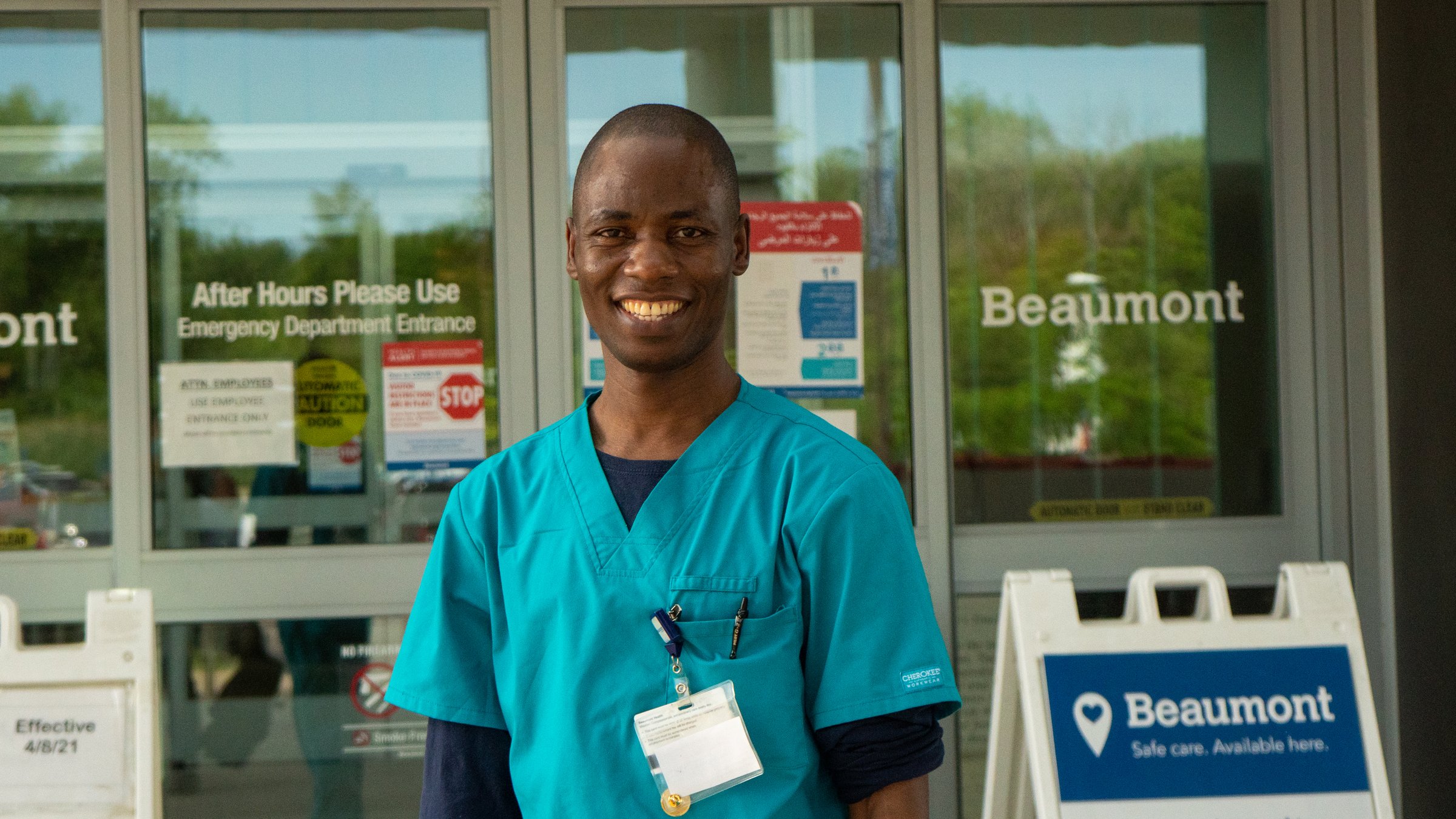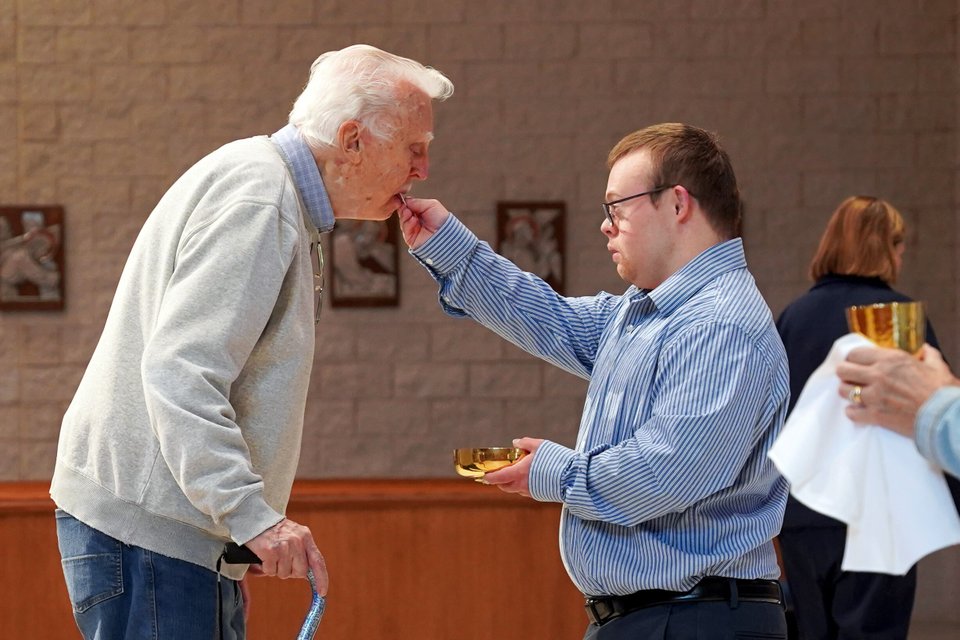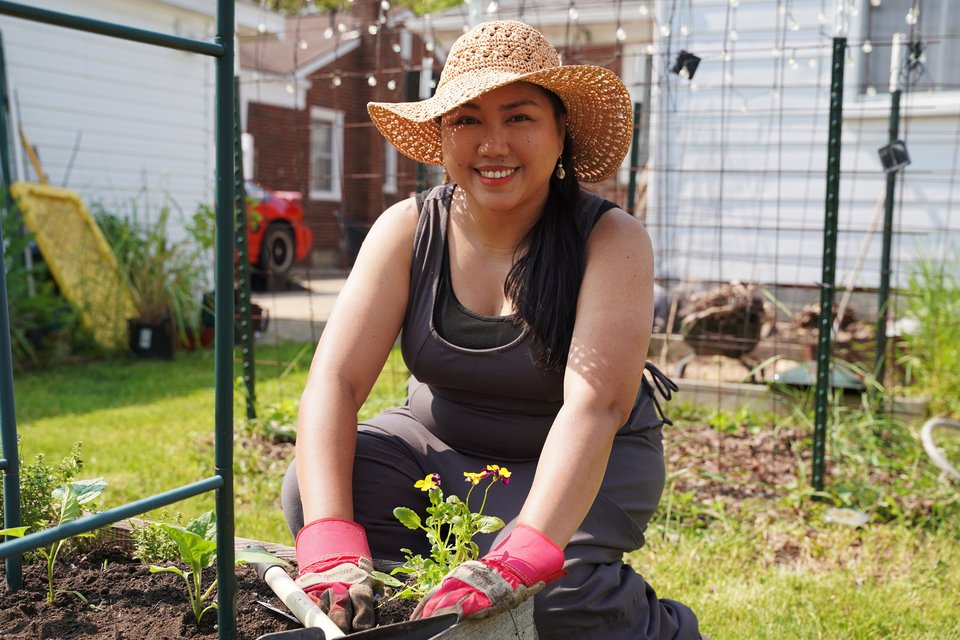After spending 10 years in seminary, Joseph Kirembwe put his dreams of priesthood on hold to care for his family, native village
TAYLOR — Ugandan-born Joseph Kirembwe is a well-known nurse’s aid at Beaumont Hospital in Taylor.
But some, including patient Susan Mondon of Dearborn, call him by another name: angel of mercy.
“Susie fell in her kitchen Dec. 9,” severely injuring her leg, said her sister, Mary Anne Linsell. “She had surgery and was sent for rehab to Beaumont Taylor, where she met Joseph. Joseph was her finest caregiver of them all. If he was on duty, it was a great day for Susie.”
Mondon’s surgery failed, and she had to return to Beaumont for a second operation. Over the course of two hospital stays, Kirembwe was Mondon’s primary caregiver for more than a month.
A friendship blossomed — and the sisters say St. Joseph gets some of the credit.
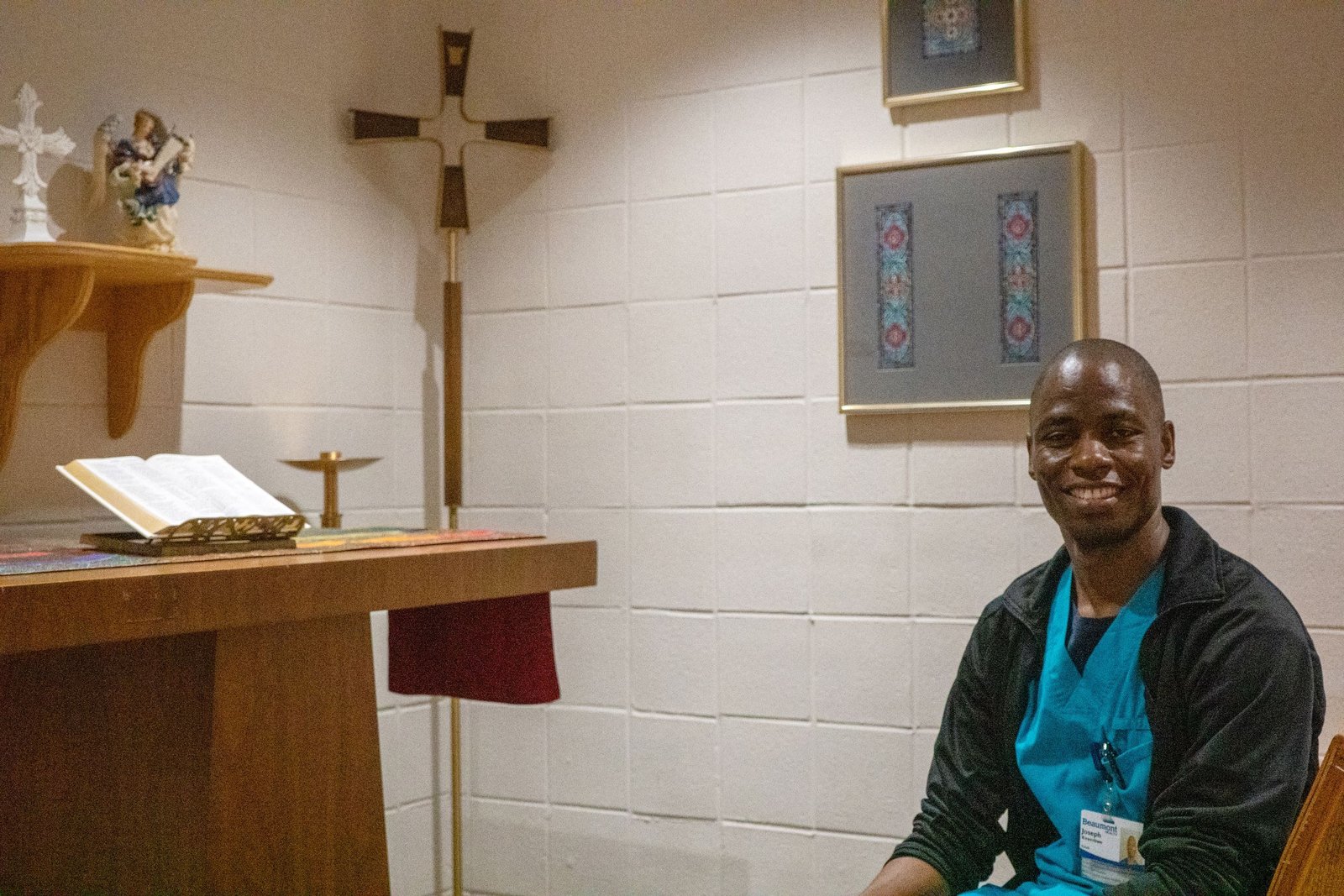
“One of my favorite statues is of St. Joseph holding the baby Jesus. I set a small St. Joseph statue on the window ledge in Susie’s room,” Linsell told Detroit Catholic. “The next day, Susie called to say when Joseph came into her room, he was almost dancing, saying, ‘That is my patron saint; I’m named after him.’ Susie would tell us, ‘He is like St. Joseph, every day, trying to make the Lord proud.’ You’re a better person, just having spoken to such a hard-working angel on earth for the glory of God.”
The statue sparked many conversations among the three about their shared Catholic faith. Mondon and Linsell also discovered why Kirembwe works so many 12-hour shifts — six or seven days a week — and why he continued working even when weakened by bleeding ulcers a while back: Most of his pay is sent home to Uganda to support his family, including his sickly mother, his brother who is a Catholic priest in a poor, rural region, as well as others from his village.
A heart for helping others
On a day off recently, Kirembwe, 36, shared his story with Detroit Catholic, welcoming a reporter into his modest apartment near the hospital. His small statue of St. Joseph occupies a prominent spot in the living room. It was a focal point when, at the end of the interview, Kirembwe made the Sign of the Cross and prayed aloud from his heart.
Joseph is the youngest of eight.
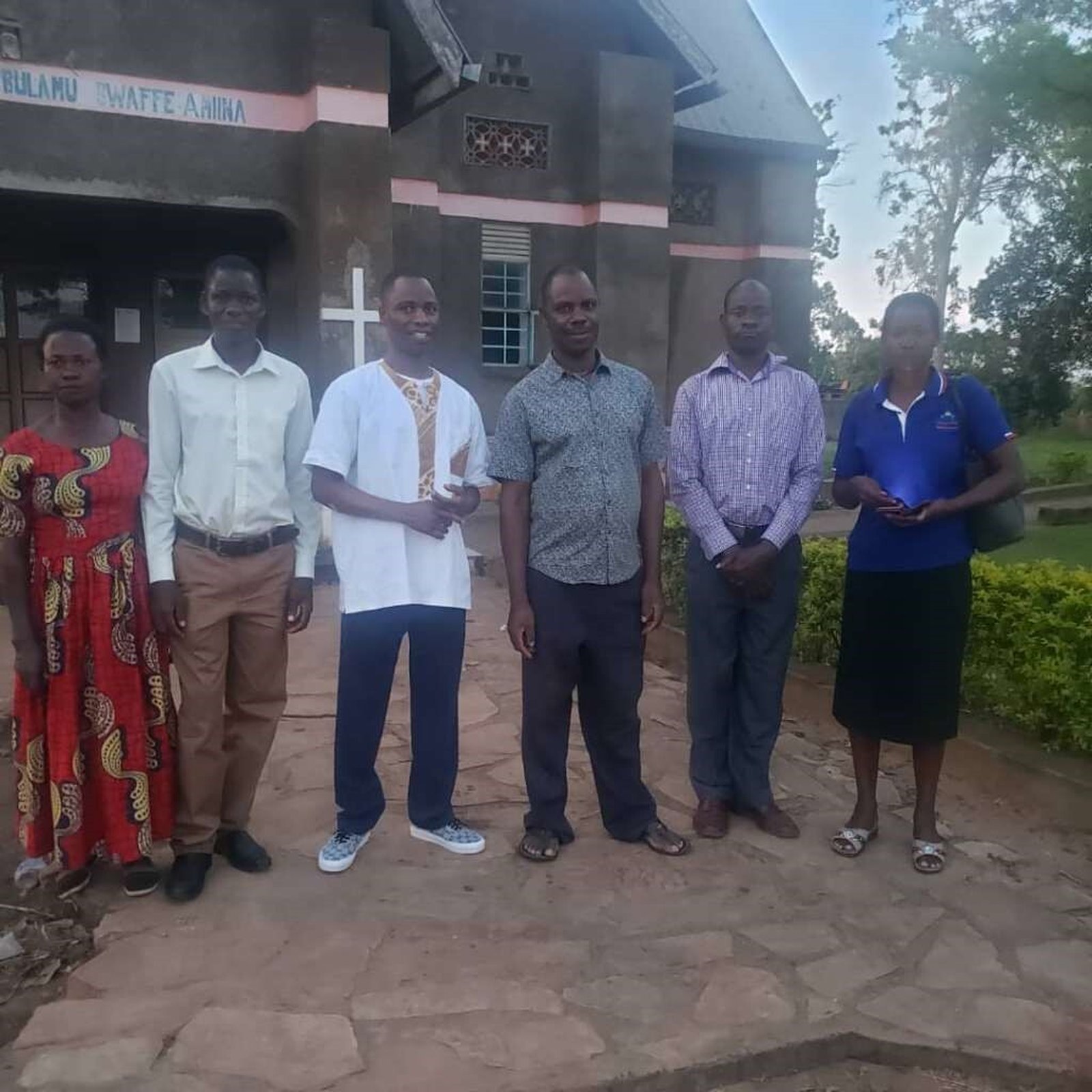
“My mom is 80; my dad died in 2009 shortly before I came to the U.S.,” he said. “We grew up in the country, a typical rural area with no water and no electricity. But thanks to God, my mom worked hard to make sure I went to school. Growing up, I wanted to become a Catholic priest, so I used to be an altar server. But because of the meager funds in the family, I couldn’t make it to the seminary. So I ended up becoming a teacher, teaching young kids. I used to teach mathematics and science. I have a passion for kids as well as for elderly people."
Kirembwe taught for four years, but the desire to pursue priesthood never left him.
“Eventually, I decided to join the seminary,” said Kirembwe, a champion runner back home. “I have a brother, Denis, who is a Catholic priest. I started my bachelor’s of philosophy in the same diocesan seminary my brother attended."
Kirembwe's diocese decided to send him to study theology in the United States, where he attended the University of St. Thomas and St. Paul Seminary in Minnesota. After 10 years in seminary — six years in Uganda and four in the U.S. — he graduated with a master's in divinity.
That's when things became complicated.
“At that time, my mom was significantly sick,” Kirembwe said. “This forced me to change my idea of going back for ordination because at that time, if I went, my mom would not be able to make it. So I had to stay (in the U.S.) and try to make some money to take care of the hospital bills back home.”
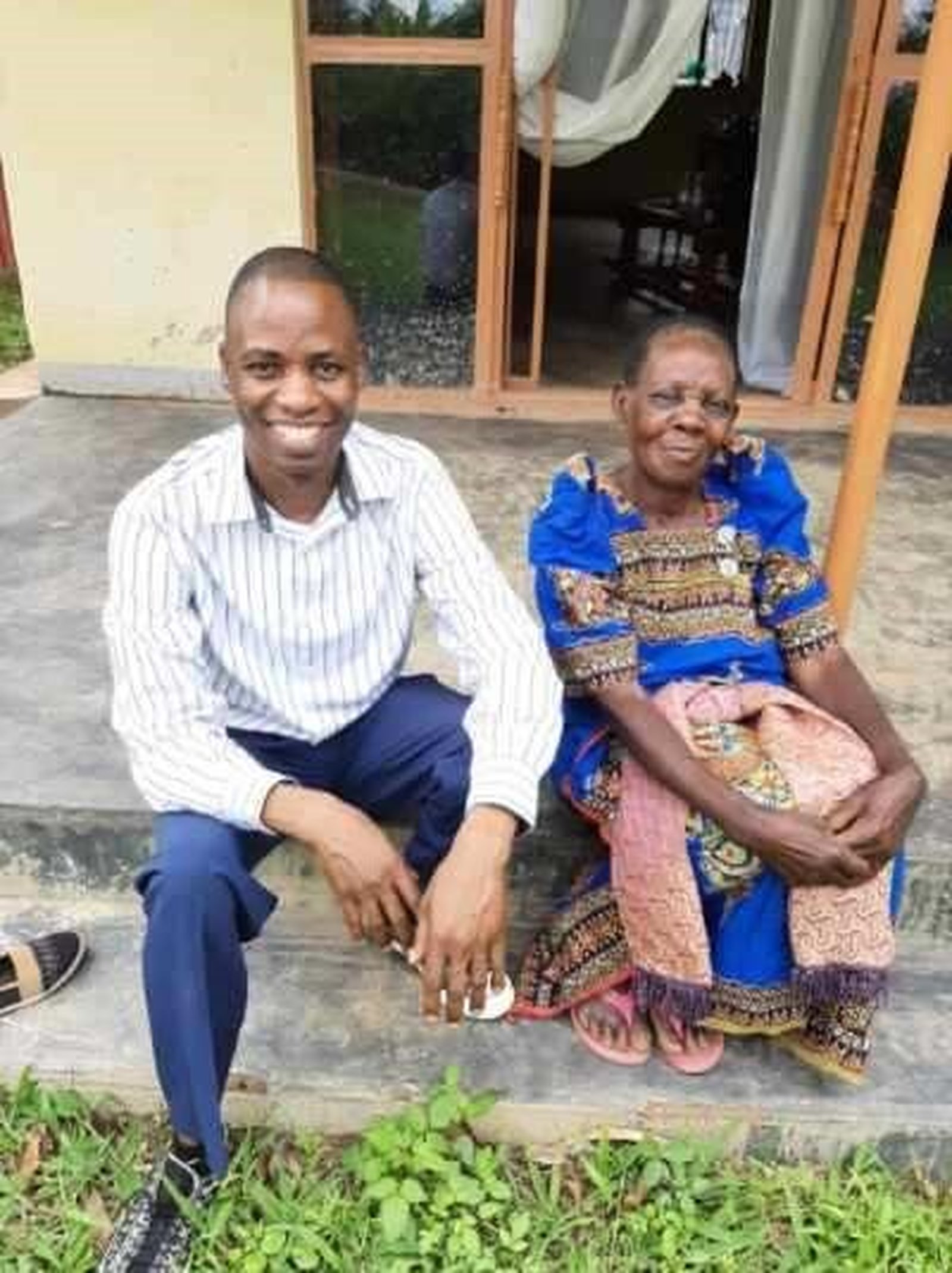
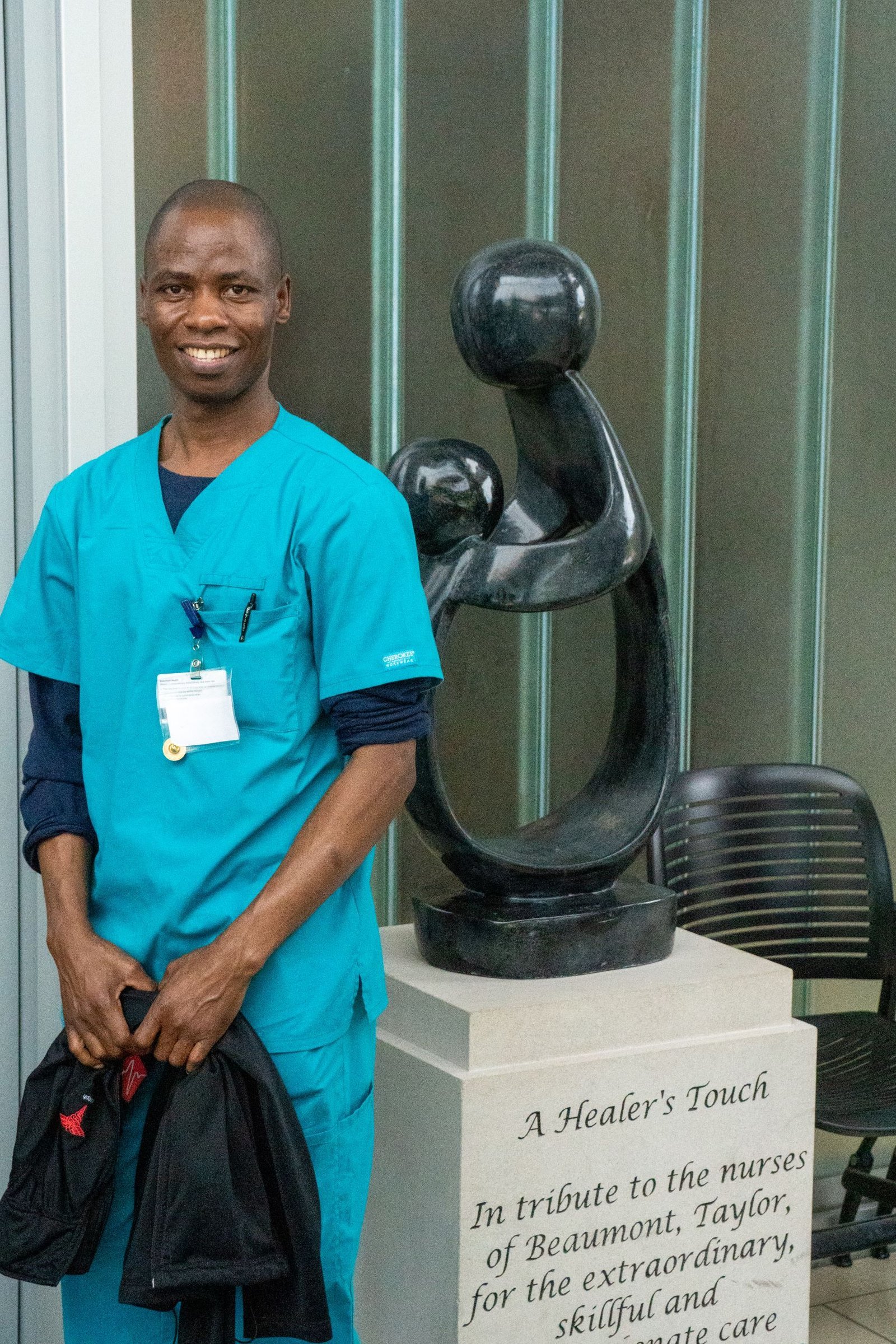
Kirembwe learned of Freedom House in Detroit, where he could live while applying for citizenship.
“They didn’t have that in Minnesota. I had a friend here who could help me, so in September 2014, I came to Michigan," he said. "The beginning was not easy. I stayed there for five months. There are very good people there. We used to call the director 'Mom Deb.' She is a mother to everyone, regardless of where you come from; she embraces you."
At Freedom House, Kirembwe met refugees from Afghanistan, Congo, Rwanda, Burundi, Egypt — “all different countries," he said, even others from Uganda. He also learned about nurse's aid training at Health Care Solutions in Detroit.
"There, I learned how to care for sick people and their needs. I took the exam, and in 2015 I became certified,” Kirembwe said. For two years, he worked at Four Chaplains Nursing Care Center in Westland, before joining Beaumont in 2017.
Getting established and having meager funds meant not being able to visit his mother for eight years, however.
“I felt like there was a gap within my heart where I needed to go sit with her, talk, hug her and have that mom-son relationship,” said Kirembwe, who has since been able to return to Uganda. “She is very, very grateful. Whenever I call her, she is almost kneeling down, thanking me for taking care of her. But this is what I’m supposed to do. She did a lot for me. I feel like I haven’t done even a quarter of what she did.”
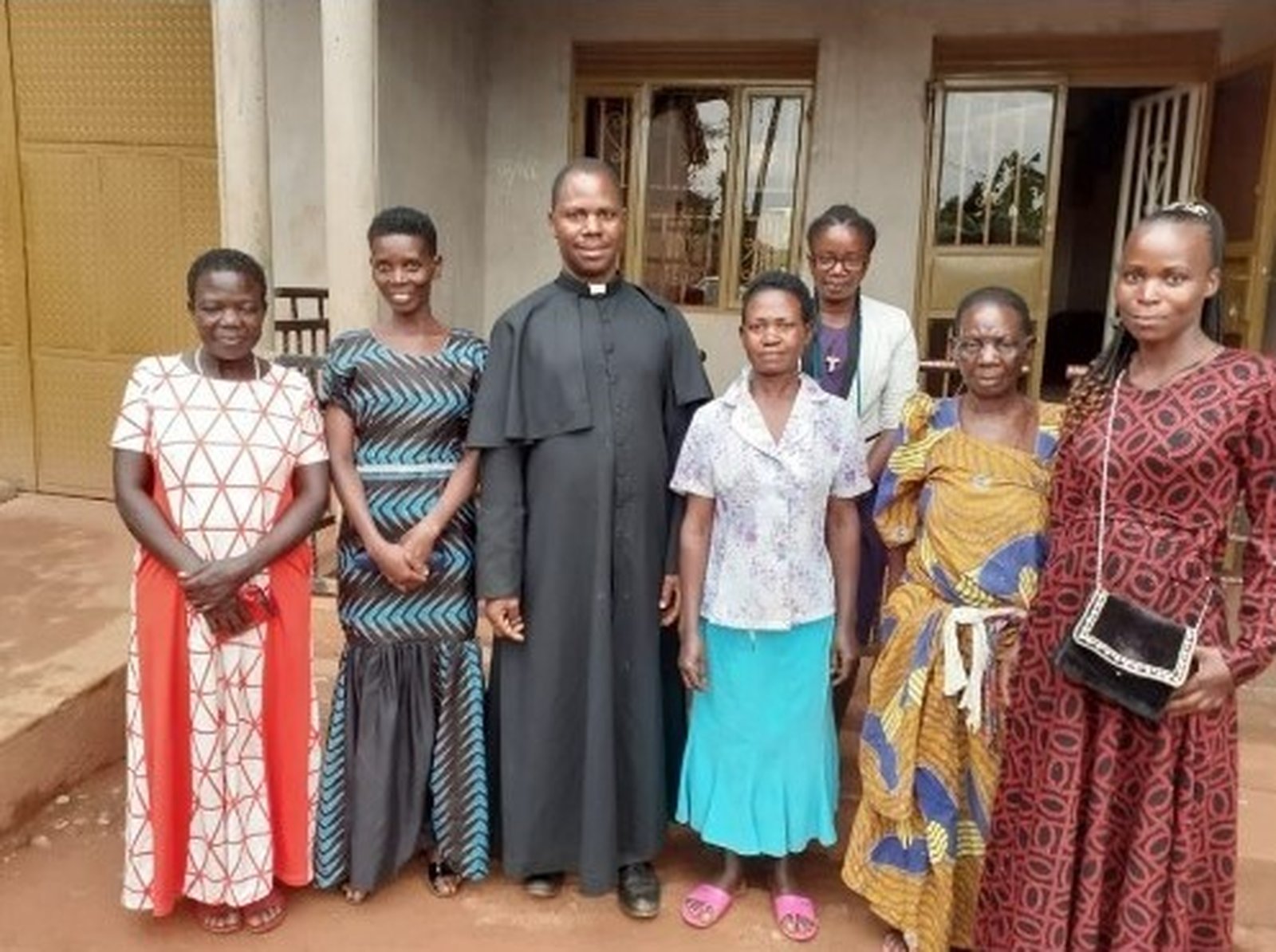
Needs are huge in Kirembwe's village, Kakoola in the Mpigi District of Uganda.
“The people literally have nothing. They are miserable. There are so many who are struggling,” Kirembwe said. “You have pity. Some are orphans. Some of them are abandoned women. They are single mothers who lost their husbands. They live on less than $1 a day. Sometimes they don’t know where to get something to eat. They are losing hope; they are hopeless.
“There is no electricity, no running water,” he added. “People use candles and kerosene to light their house. Kids have to go down in the valley with containers to bring water home on their heads. That is what I grew up doing, too. It’s nothing new. It could be like one mile, like I walked, or for some people one-and-a-half miles to fetch water. It’s the situation we are in. We are used to it."
Ria, a ray of hope
But being used to the situation didn't mean becoming complacent. So Kirembwe and his sister hatched an idea.
“When I talked to my sister Ruth — she is a mom, and a banker in Uganda — we came up with an idea of starting an organization to help out with the little we have," Kirembwe said.
They called their organization Ria Child Care & Women Empowerment Ministries.
"It’s named after Maria, the Virgin Mary, the patron saint of our organization,” Kirembwe said. “The kids are just in a very sorry state. Young kids would love to go to school, but have no tuition, no school; they have nothing. We were able to start off with two kids, Angel Nabadda, 7, she is in first grade, and Marvin Lubowa. He is eight and also in first grade. We try to provide tuition and clothes and make sure they are kept in school. We want to help more children, but cannot afford it.”
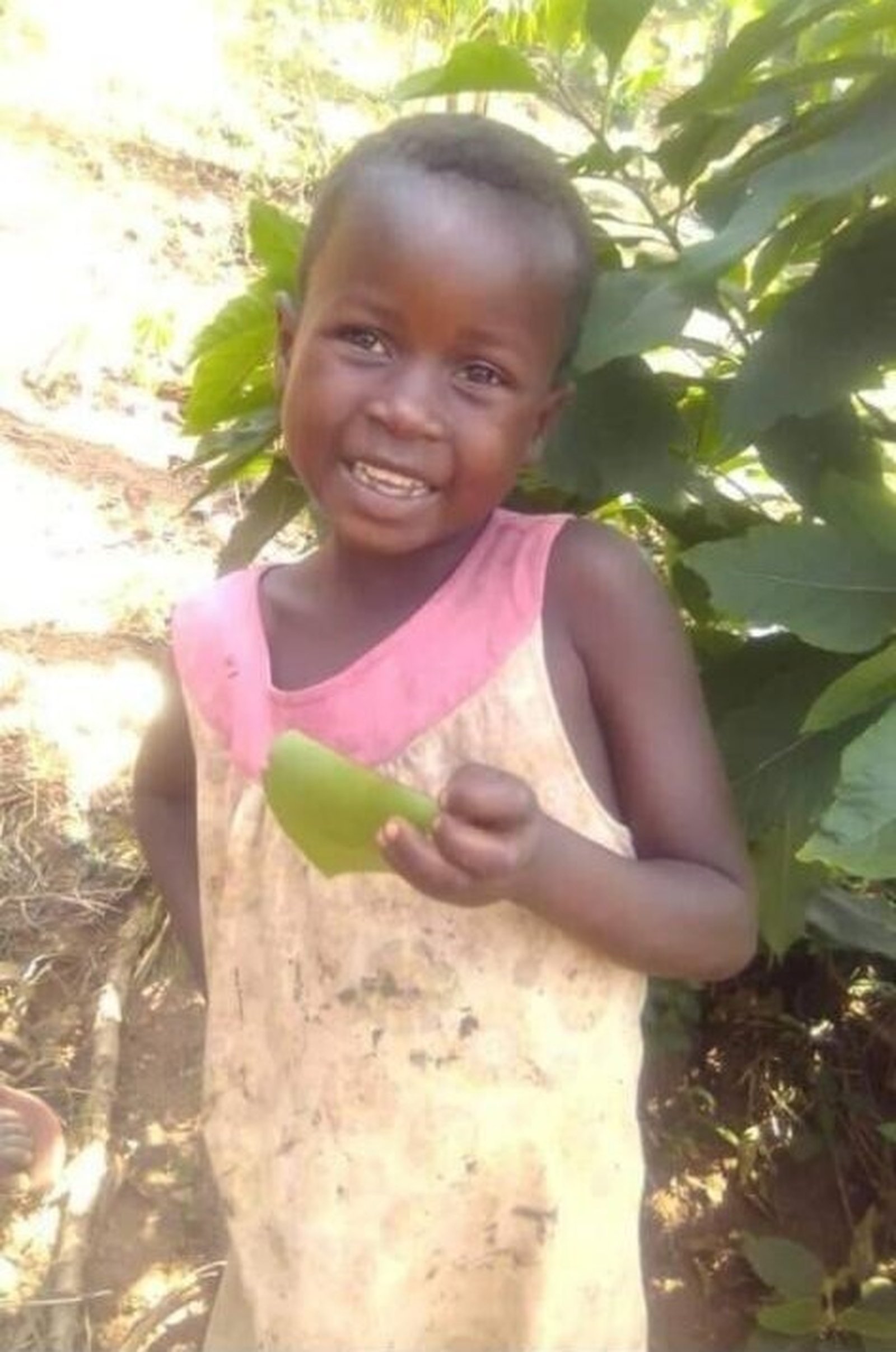
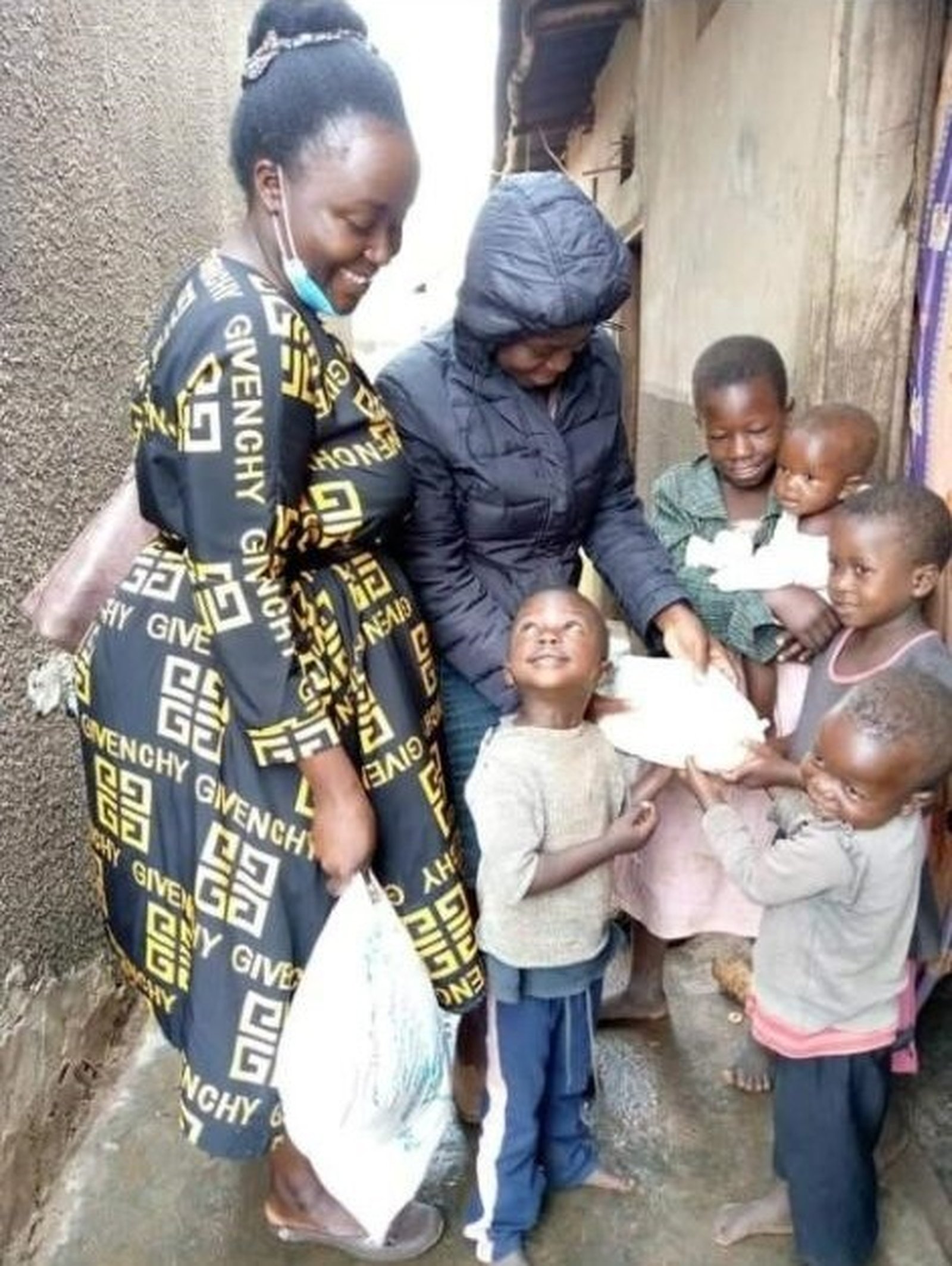
A friend, Ida, helps Ruth and Joseph.
“Since I’m here, I can’t be on the ground. Ruth and Ida do the groundwork, follow up with the kids, and visit them at school and at their homes. They take them some of the clothing, and some scholastic materials. They make sure they are ok,” Kirembwe said.
Uganda does have tuition-free public schools, “but the schools are only in certain areas. The school could be 10 miles away,” Kirembwe said. “Young kids can’t make it to that place. For a kid, it’s practically impossible. These are very needy, needy families.”
During the pandemic, the government wanted to establish virtual learning, but with a lack of basic technology, it couldn't get off the ground.
"Most schools in villages don’t have electricity, phones, TVs and radios, so how would they do that? It was impossible," Kirembwe said. "So what happened? Kids had to stay home for two years. They have just started back this January.”
Mondon and Linsell say Kirembwe "walks and talks the joy of Jesus" despite the hardships. The sisters try to help him in small ways.
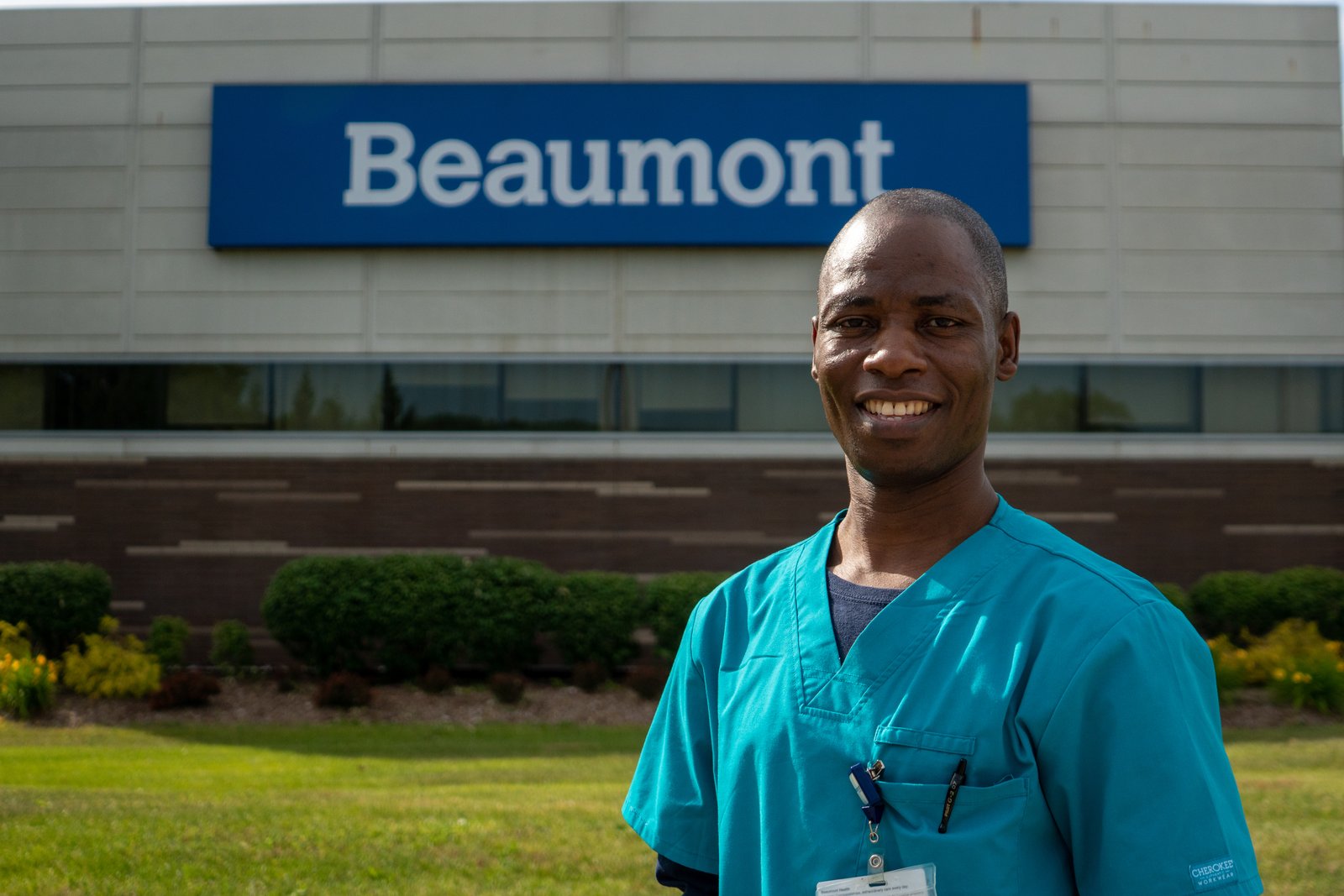
“Maybe through various ways, Joseph’s community back home could be helped," Linsell said. "We’re planting a seed to see where the Holy Spirit might take this. A water well in his hometown village? Sponsorship for more little ones to go to school? Medicine and food for his family and others back home? A seminary call for Joseph here in the U.S.?”
Given the chance, Kirembwe said he'd like to go back to school to pursue a career in nursing, to “earn a better living to help more of my people back home," he said.
But even that's on hold, without the sure knowledge that his mother is doing OK back home.
"If I start going now, my mom will not be able to get the care and attention she needs," Kirembwe said. "Right now, everything is on hold. I have to make sure she is OK. If she isn’t, I will not concentrate, I will not study well. I have this degree; I studied theology and philosophy but I don’t know how to proceed, really.
“I like it a lot at Beaumont,” Joseph added. “It is quite edifying when you see a patient is recovering under your care. It gives you hope. Just like the story of the Good Samaritan. You see somebody making progress, and you feel good that you have been able to help them.”
Mondon and Linsell couldn’t be more grateful.
“Joseph made Susie and our family’s ride a little smoother, knowing she had an Angel of Mercy most days during her suffering,” Linsell said.
Anyone wishing to learn more and/or donate to Ria Child Care & Women Empowerment Ministries may visit http://riachildcare.org/about-us. Donations also may be made directly to Joseph Kirembwe by contacting him at Josephkirembwe@gmail.com.
Copy Permalink
Personal witness

